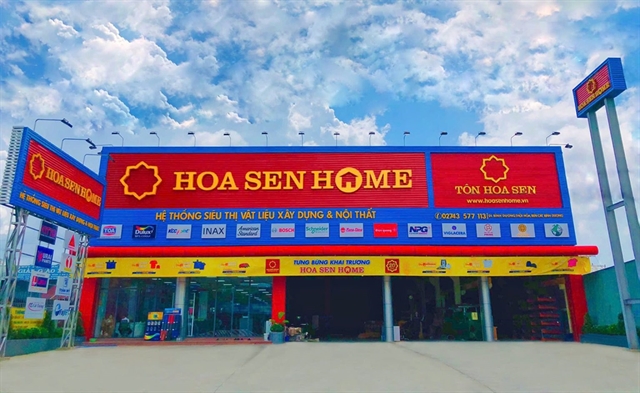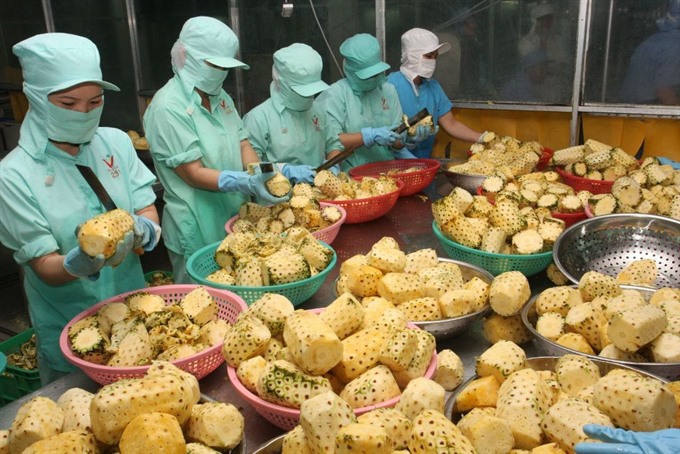 Economy
Economy

Việt Nam's agricultural exports face a range of challenges and barriers in Europe due to new stringent food safety regulations
 |
| Việt Nam is one of the important suppliers of farm produce to the EU, ranking 12th among all exporting nations and meeting 2.2 per cent of the demand, above Thailand, New Zealand, Malaysia and Canada. — VNA/VNS Photo |
HÀ NỘI — Việt Nam’s agricultural exports face a range of challenges and barriers in Europe due to new stringent food safety regulations.
Trần Ngọc Quân, deputy director of the Ministry of Industry and Trade’s Department of European–American Markets, said once the European Union (EU)-Việt Nam Free Trade Agreement (EVFTA) takes effect, tariffs on Vietnamese farm produce would drop to 0-5 per cent over the next decade.
Việt Nam is an important suppliers of farm produce to the EU, ranking 12th among all exporting nations and meeting 2.2 per cent of the demand, above Thailand, New Zealand, Malaysia and Canada.
However, the EU has is focused on value, quality, safety and hygiene and has issued stringent regulations on antibiotics, pesticides and tracing product origin.
A representative from the Việt Nam Trade Office in the EU said the bloc would enhance inspections and was drafting new regulations on quality standards for pepper and spices.
Quân said thanks to the economic recovery in several EU member states and increasing consumption demand, key products such as aquatic products, cashew nuts, fruit and vegetables, coffee and had rubber maintained high export growth. He suggested closely monitoring the manufacturing process and making the origin of products transparent.
Trần Hữu Huỳnh, director of the Việt Nam Chamber of Commerce and Industry’s Legal Department and Secretary General of the Việt Nam International Arbitration Centre, said the State should issue an early warning system to give exporters market information while agencies should offer policies to allow farmers to tap their full potential. — VNS